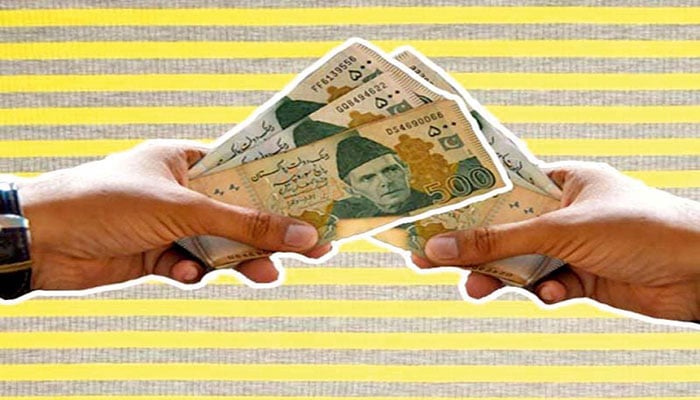Salaries, perks of Grade 21 officer higher than UN officer
The public-owned houses have a minimum market value of Rs 1.45 trillion
ISLAMABAD: Civil servants in Pakistan are not at a salary disadvantage when compared to their counterparts in the private sector. And the total cost of a Grade 21 officer is estimated to be 12pc higher than a UN national officer, unfolds the in-depth study on Civil Service Compensation: Incentives, Dissatisfaction and Costs done by (Pakistan Institute of Development Economics) PIDE.
The civil servants also enjoy in kind benefits of worth billions of rupees like housing, official cars, job security and medical allowances. The public-owned houses have a minimum market value of Rs 1.45 trillion and can generate an annual rental income of Rs 10.75 billion.
And monetization notwithstanding, the cost of using an official car exceeds the basic salary of employees in BPS 20-22. Job security has an added value of 0.5pc to 17pc on the compensation. Apart from the medical allowance, approximately Rs 2.3 billion monthly are incurred on civil servants’ medical bills. Such perks are an inefficient form of compensation as they are not linked to performance and efficiency. The World Bureaucracy Indicators of the World Bank estimates that the public sector wages in Pakistan are 53pc higher when compared to the private-sector wages
Authored by Vice Chancellor of PIDE Dr Nadeemul Haque, Omar Siddique and Naseem Faraz, the study looks into some key issues within the civil services that include: cash payments, non-cash rewards, inequality in the distribution of perks, waste of precious land for housing, pay and performance disconnect, a bias between cadre and non-cadre officials, and marginalised specialized groups.
In the absence of private-sector salaries’ data, PIDE used the Labour Force Survey 2017-18 data and the pay structure used for the local hiring by the UN for comparison. The UN local recruitments are done on a market survey of the salaries. And under that yardstick, the total cost of a Grade 21 officer is estimated to be 12pc higher than a UN national officer. It also pinpoints saying that non-monetary benefits are much higher in the public sector than in the private sector, with 80pc of the private sector workers having no non-monetary benefits.
In contrast, almost 80% of public sector employees have more than three non-salary benefits. Except for an MPhil/PhD degree, there is a wage premium in the public sector at all education levels. The study also identifies the fact that the public sector pension system as rather generous. The pension is calculated as 70% of the last drawn basic salary at the time of retirement, if the raises granted by successive governments are included, it raises the pension to 122%-140% of their last drawn basic salary in some cases. And on average, a person who serves in the government for 25 years or more draws a pension until they turn 80. And after their death, at least 13 heirs can claim family pension.
In the private sector, only those employees receive after-retirement benefits who work in the formal sector. The informal sector employees do not have any such system for their security in old age. Moreover, the blue-collar workers in the formal private sector only get meager social security payments after retirement.
The study suggests reforms by adequately compensating all civil servants so that their welfare is not compromised. The salaries of the civil servants must be at par with the comparable private sector salaries. The annual adjustment in the salaries must be based on an annual survey, performance-based, with only those should get a raise who cross a predetermined efficiency bar.
The monetization of all the perks should be a priority as it would reduce the disparities within the structure. The government housing must be monetized sequentially by grades starting from grade 19-22 employees. The government housing assets have a market value of approximately Rs 1.45 trillion. The government can receive this value after releasing the government housing assets in Islamabad to the private sector boosting the construction industry.
The investment can be made through public-private partnership for commercial activities, social infrastructure (libraries, recreation, community spaces) and low-cost housing. The reform can increase the accommodation capacity of the land by more than ten times.
Similarly, the use of official cars by top civil servants must be abolished, and they should be given cars on leasing arrangements. It would ensure that the officials will have a fully maintained car from the very first day of the contract. The advantage of this model is that the bank would monitor the asset. Based on an inventory, some of the freed-up official vehicles would be auctioned off, and rest would be put in a shared pool. Officials can use these common pool vehicles for only a fixed number of times per month. After they have used up their vouchers, the private use of official vehicles would be charged as per the existing government rules.
The New Public Management (NPM) literature and international practices clearly show that the monetisation of benefits and perks makes the system transparent. Since Pakistan also seems to be moving towards NPM, it must be on the reform agenda. The private-sector labour market survey indicates that the private sector has successfully shifted to the health insurance system. If the government does the same it can save Rs 2.3 billion per month.
The pension system must be changed from the defined benefit system to the defined contribution system making pension payouts sustainable in the long run. There is a need to reduce the number of employees working in lower grades, who account for 85% of civil servants’ total wage bill. Most of these jobs have become redundant. The existing sanctioned posts that are not occupied should be abolished, and there should not be further hiring in these grades. It will release sources to finance any revisions in the salaries.
-
 Jennifer Garner Drops Parenting Truth Bomb On Teens With Kylie Kelce: 'They're Amazing'
Jennifer Garner Drops Parenting Truth Bomb On Teens With Kylie Kelce: 'They're Amazing' -
 AI Is Creating More Security Problems Than It Solves, Report Warns
AI Is Creating More Security Problems Than It Solves, Report Warns -
 'Game Of Thrones' Prequel 'A Knight Of The Seven Kingdoms' New Ratings Mark Huge Milestone
'Game Of Thrones' Prequel 'A Knight Of The Seven Kingdoms' New Ratings Mark Huge Milestone -
 Apple Seeks To Dismiss Fraud Suit Over Siri AI, Epic Injunction
Apple Seeks To Dismiss Fraud Suit Over Siri AI, Epic Injunction -
 Delroy Lindo Explains The Crucial Role Of Musical Arts In Setting Up His Career Trajectory
Delroy Lindo Explains The Crucial Role Of Musical Arts In Setting Up His Career Trajectory -
 Timothée Chalamet Reveals How He Manages To Choose The Best Roles For Himself
Timothée Chalamet Reveals How He Manages To Choose The Best Roles For Himself -
 Princesses Beatrice, Eugenie’s Conflict Gets Exposed As Mom Fergie Takes Over The Media
Princesses Beatrice, Eugenie’s Conflict Gets Exposed As Mom Fergie Takes Over The Media -
 Kate Middleton Plays Rock-paper-scissors In The Rain
Kate Middleton Plays Rock-paper-scissors In The Rain -
 Lindsay Lohan On 'confusing' Teen Fame After 'Mean Girls': 'I Should Have Listened To My Mom And Dad'
Lindsay Lohan On 'confusing' Teen Fame After 'Mean Girls': 'I Should Have Listened To My Mom And Dad' -
 Savannah Guthrie Mom Update: 'Today' Show Sees Huge Ratings Boost Amid Search For Nancy Intensifies
Savannah Guthrie Mom Update: 'Today' Show Sees Huge Ratings Boost Amid Search For Nancy Intensifies -
 Hillary Clinton To Testify In Epstein Probe Alongside Bill Clinton
Hillary Clinton To Testify In Epstein Probe Alongside Bill Clinton -
 Meghan Markle, Prince Harry End Jordan Trip With Meaningful Hospital Visit
Meghan Markle, Prince Harry End Jordan Trip With Meaningful Hospital Visit -
 AI Boyfriends Gain Popularity In China As Young Women Turn To Virtual Romance
AI Boyfriends Gain Popularity In China As Young Women Turn To Virtual Romance -
 Prince William Receives Reality Check As His Media Strategy Fails
Prince William Receives Reality Check As His Media Strategy Fails -
 Zach Braff Reflects On Doing Odd Jobs Ahead Of Major Career Breakthrough In 2001's 'Scrubs'
Zach Braff Reflects On Doing Odd Jobs Ahead Of Major Career Breakthrough In 2001's 'Scrubs' -
 Google Rolls Out Nano Banana 2 With 4K AI Image Generation
Google Rolls Out Nano Banana 2 With 4K AI Image Generation




